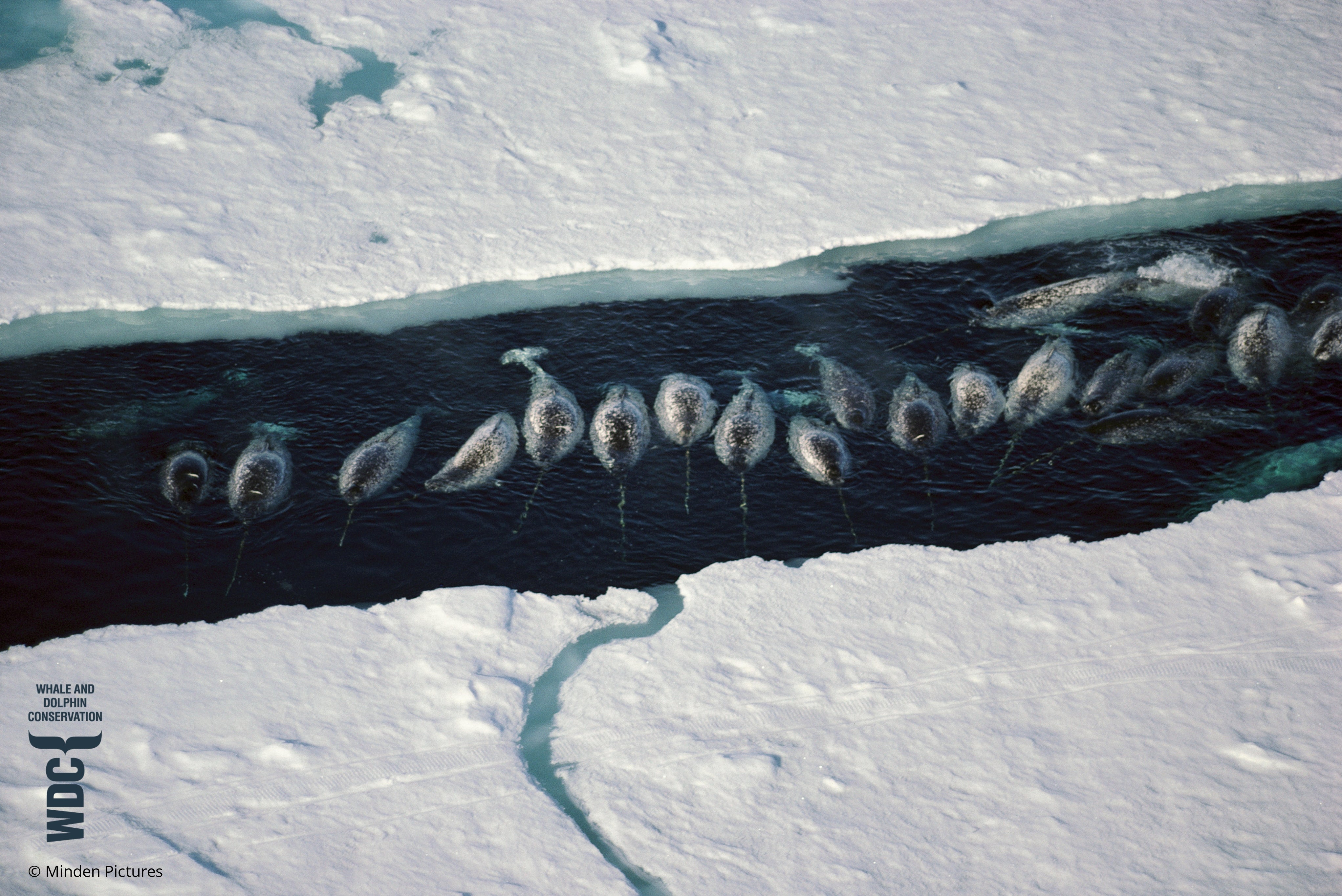Inspiring women — Nicola Hodgins, marine biologist and narwhal enthusiast

We love learning about all the amazing creatures that inhabit our Blue Planet, don't you, sailor? Today, we meet marine biologist and dolphin researcher Nicola Hodgins.
Nicola works for our friends at WDC (Whale and Dolphin Conservation) and as a narwhal whale expert she's ready to share with us surprising facts and tips to help protect these beautiful whales.
Let's meet Nicola!
Ahoy Nicola! Welcome to our journal, it’s a pleasure having you here today! Could you please introduce yourself?
It’s a pleasure to be here, thanks for having me! So, I’m Nicola Hodgins, a marine biologist and dolphin researcher originally from Scotland (and where I still undertake research on a lesser known species, the Risso’s dolphin) and I’ve been working for WDC for over 17 years now.

We know you are a Narwhal expert, could you tell us what was the reason that made you fall in love with these Arctic whales?
I’m not sure I know of a reason why or how I couldn’t have. Just look at them! As a Scot I have a particular fondness for unicorns (being they are our national animal) and narwhal are the marine equivalent – you could say they are almost mythical creatures themselves as we know so little about them.

What are the most surprising facts you learnt about narwhals, why do you think they are special creatures?
They can hold their breaths for up to 25 minutes, which likely they need to do as they can dive up to 1.5km deep in search of food!
However, an even more intriguing behaviour is that there is evidence of them hybridising with beluga, with the resultant offspring known as a ‘narluga’. Hybridisation can, and has, led to the evolution of new species however importantly what it can also do is enhance the capacity of individuals to survive in a changing environment by allowing them to adapt to the world around them.

Whale hunting, climate change… narwhals face several threats. What can we all do to help them?
As you say, narwhal face a multitude of threats. They have a special place in my heart because we just have to look at the fate of some of the known populations to see the irreversible damage that we humans are doing to our planet and our wild life and wild places.
Climate change is blatantly apparent in the narwhals’ home and every aspect of a narwhals’ life is connected to the sea-ice. It would be true to say that their world revolves around it. Climate change is going to affect these unicorns of the sea more than almost any other species but even before then, the continued hunting of individuals (biased towards males as they have the valuable tusk) from several already depleted populations, may lead to their extinction within the next decade.
To help address these threats and protect narwhal into the future, you can of course support the work of WDC.
We are very proud of our Narwhal case, in collaboration with WDC. What do you like the most about it?
I just love the way it looks - the mottled skin, spiralled tusk and the attention to detail on the inside of the case – it’s great! And who doesn’t want to carry a narwhal around with them at all times to help brighten their day?
Thank you so much for being here with us, Nicola! We learned a lot about our favorite Arctic whales and the importance of protecting and taking care of our planet so vulnerable creatures like narwhals can live happily.
If you want to help protect them too, we partnered up with WDC and by buying our Narwhal case you are contributing 3 € towards WDC's conservation work.






Comments
0 Comments